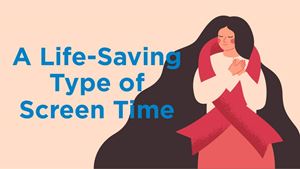
We’ve all heard the saying “age is just a number,” but when it comes to your body, age can be an important factor in determining your risk for serious health concerns.
With heart disease and colorectal cancer cases on the rise, medical professionals like Dr. Jane Salamone, Executive Medical Director of Rochester Regional Health’s Primary Care Institute are revisiting the age recommendations for important health screenings, and urging patients to monitor any abnormal physical changes they may be experiencing.
“Even without any symptoms, health screenings become more important for adults over age 35,” said Dr. Salamone. “A healthy diet and adequate exercise are key to staying healthy, but there are other factors like genetics that come into play.”
Here are the most important screenings to schedule if you have a family history of related diseases or any symptoms:
Regular screenings for colorectal cancer - a highly treatable and preventable cancer if discovered early - are recommended for all adults over age 50. Because colorectal cancer cases are on the rise in younger patients, screenings are also encouraged for anyone who’s experiencing possible symptoms, has Crohn’s Disease or ulcerative colitis, or has a family member who’s had colorectal polyps or colorectal cancer.
“Colorectal cancer most often develops from precancerous polyps in the colon or rectum, and screenings to detect these include stool tests, flexible sigmoidoscopy, colonoscopy, and CT colonography (virtual colonoscopy),” explained Dr. Salamone.
Women at average risk for breast cancer (no family history, no evidence of the BRCA1 or BRCA2 mutation), are generally advised to schedule a mammogram - X-ray of the breasts – every year starting at age 45, according to the American Cancer Society. A breast MRI, which uses magnets and radio waves to take pictures of the breast, may also be used to screen.
“If you are a woman under 50 who has family history or concerns, you should perform regular self-examinations (checking for irregular lumps or growths),” Dr. Salamone added. “Consult with your primary care doctor about the best time to begin breast screenings.”
While heart disease is often linked to obesity and age, it is still the leading cause of death in the United States. Screenings for heart health include:
To discuss or schedule a health screening, contact your primary care doctor.